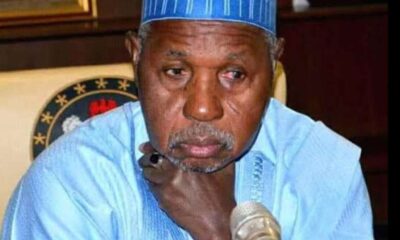
News
Hunger: Atiku warns of looming revolution
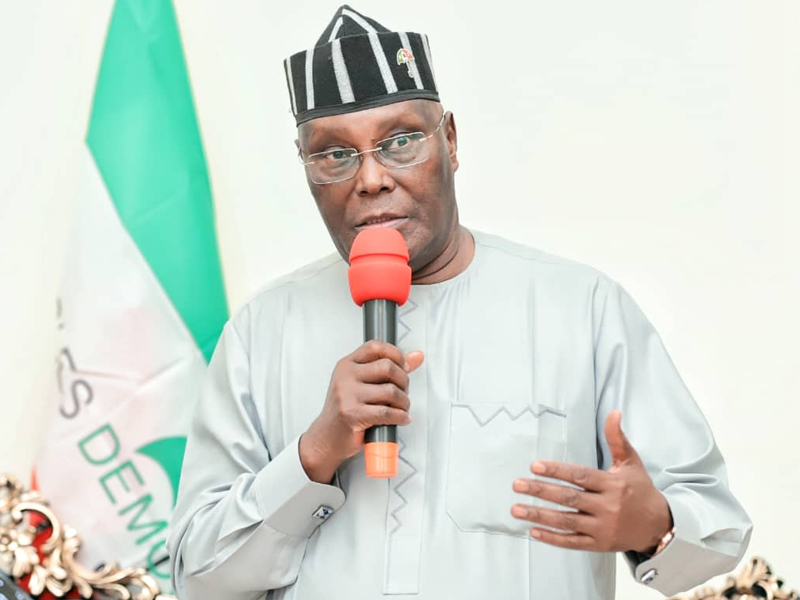
Former vice president, Atiku Abubakar, has accused the All Progressives Congress (APC) and the President Bola Tinubu administration of elevating poverty, division and hate to state policies.
Atiku, who spoke through his media aide, Paul Ibe, told Daily Sun that the present administration was in the habit of turning out policies that are allegedly not thought through all because of politics.
The Presidency, however, dismissed his comment as cheap talk, describing the criticisms as disconnected from Nigeria’s current realities
“Talk is cheap,” the Presidency declared, in a statement issued by Special Adviser on Information and Strategy, Bayo Onanuga. It emphasised that Atiku and his handlers were “clearly out of touch with the positive developments currently unfolding in our country.”
Onanuga criticised Atiku’s comparison of Nigeria’s situation to the upheavals preceding the 1789 French Revolution and the 1917 Russian Bolshevik Revolution as grossly misleading and a sign of disconnect from the authentic Nigerian reality.
Atiku, while reacting to comments by APC National Publicity Secretary, Felix Morka, that he (Atiku) was not in position to speak on the state of affairs, noted that every policy of the present administration is based on politics.

Morka, while featuring on Politics Today on Channels Television, yesterday, had said people like Atiku, who allegedly failed to address national challenges, during their time in government are not in position to talk about the perceived failures of subsequent administration.
“This Atiku, we are discussing, under his administration, in 1999 , these guys had a windfall. It was like manna from an oil windfall. What did they do with it. This same Atiku has publicly confessed about how they squandered 21 billion meant to give us electricity. Has he forgotten?
“When Nigerians speak about economic, I listen because they have a right to speak, but when people that has been entrusted with a mandate, authority to solve a problem and failed, when they come along to speak about the failures of subsequent governments, a man like Atiku, with due respect, on this question should be quiet. “
In a statement signed by Ibe, Atiku had decried the spate of hunger in the country, saying it was unacceptable. He noted that whereas the primary objective of any government is the security and welfare of citizens, Nigerians are progressively wallowing in misery and poverty under the watch of the Tinubu-led APC administration. “The current situation does not give cause for cheers as it engenders an increasingly progressive propensity for criminalities in form of high-wire fraud, terrorism, kidnapping, cultism, drug addiction and ritual sacrifice, among others.
“The most violent socio-political eruptions and revolutions all over the world had often been powered by pervasive hunger and unbearable material conditions – especially the paradox of squalor amidst plenty in our land.”
Consequently, he noted that “the current unacceptable situation offers an opportunity for reflection, the former Vice President cited the French Revolution, the 1917 Russian Revolution and the Arab Spring in which a young man caught in the maelstrom of unbearable frustration set himself ablaze in a development which occasioned violent socio-political eruptions starting out from Tunisia to engulf the Middle-East and North Africa.
“Back home here in Nigeria, it may not be out of place to argue that even the “ENDSARS” protest was fuelled by the traumatising frustration of hunger and insensitivity on the part of the government.
“Whatever reform the Tinubu government might claim to be undertaking, the point remains that food insecurity is a daily occurrence nationwide. There is no government worth its salt that does not place priority on the welfare and security of the people.”
Atiku, who lamented that after the two years of the Tinubu administration, there are no signs that the government is capable of addressing the issue of pervasive hunger in the country, noted that the reforms by the administration should have a human face.
“Whether the present powers accept it or not, the reality of our existence is that the poor are increasingly dying of hunger while the majority of the living poor exists at the mercy of the ill-advised policies of this government,” he stated.
The former Vice President, in response to the APC spokesman, noted during his time in government, in the President Olusegun Obasanjo administration, “there was abundance there was food. The GDP grew at an average of about 7 percent. In one of the years, it was 15 percent.
“They did infrastructure development. Communication. GSM, the way we know it, all the Fintech and all was as a result of the hard work. The Obasanjo Atiku administration set up the EFCC, which this administration is using now as a political tool to whip politicians in line, using it to ensure that everybody is shepherded into the APC, a one party dictatorship.
“That is the character of these people. Tinubu and the APC.Tinubu is not the President of the APC. He is the President of the Federal Republic of Nigeria and whether we are members of the ruling party or the opposition, our interest is supposed to be taken care of by this government. But they have not done that. What have they done, they have introduced division. Ino our body polity. We have never been this divided. Poverty, division and hate are now policies of state.
“They turn out policies that are not well thought through. All their calculations are based on politics. We are aware for example that the farmers that the Buhari administration had encouraged to go into massive farming, a lot of those farmers have now left, because of political expediency.
“They should stop majoring in minors in government politics. Roll their sleeves and get on with the work of governance. Nigerians are hungry. Nigerians have never been this poor. What are they talking about?”
Atiku added that “what we are saying is that we are asking that this leadership with what is going on and all of that, the level of frustration and anger, elsewhere we have seen that these things have engendered social political crisis. We are not asking for that.
“We are asking that they should reflect. It is time for reflection. It is time for them to turn around, begin to reappraise the situation and see how they can make life better for Nigerians, that is what it is about. Nobody is asking for all that. No..We are asking that they need to be conscious. They should be conscious of history and not repeat history. And make amends.”
The Presidency criticised Atiku’s comparison of Nigeria’s situation to the upheavals preceding the 1789 French Revolution and the 1917 Russian Bolshevik Revolution as grossly misleading and a sign of disconnect from the authentic Nigerian reality.
Highlighting concrete economic data, the Presidency pointed to the latest report from the National Bureau of Statistics (NBS), stating, “Just today, the National Bureau of Statistics released its figures for August, showing that headline inflation has declined for the fifth consecutive month.” Further evidence of economic progress is seen in a “record trade surplus,” with the contribution of non-oil exports now nearly matching that of crude oil at a ratio of 48.52 percent.
On Nigeria’s financial reserves, the Presidency noted significant improvements, saying, “Our foreign exchange reserves are on the rise, now approaching $42 billion. When President Tinubu assumed office, reserves stood at $32 billion, much of it encumbered.”
The administration has also cleared over $7 billion in arrears, including $800 million owed to airlines, strengthening the country’s fiscal position.
The Presidency also pointed out the positive ripple effects at the subnational level, saying, “Under President Tinubu, Nigeria is recording unprecedented revenues. States are now able to pay salaries and gratuities promptly and still have surplus funds for capital and social projects, an achievement not previously witnessed at this scale.”
The statement rebuked Atiku and his party, saying, “Nigeria is moving in the right direction. In contrast, Atiku and his party remain stuck in the past, fixated on doomsday scenarios and revolutionary rhetoric.”
The Presidency reminded the public that “many of the challenges we face today stem from the economic mismanagement during the PDP years, when Atiku was Vice President.”
President Tinubu’s leadership, the statement affirmed, is marked by bold reforms and relentless effort to correct those errors. “After just two years and five months in office, we are proud of the progress being made. Atiku and his allies may choose to ignore these gains, but Nigerians can see and feel the positive changes taking place across the nation.”
News
Ex-Speaker, Aminu Masari, lists four conditions to bridge gap between campaign promises and realities
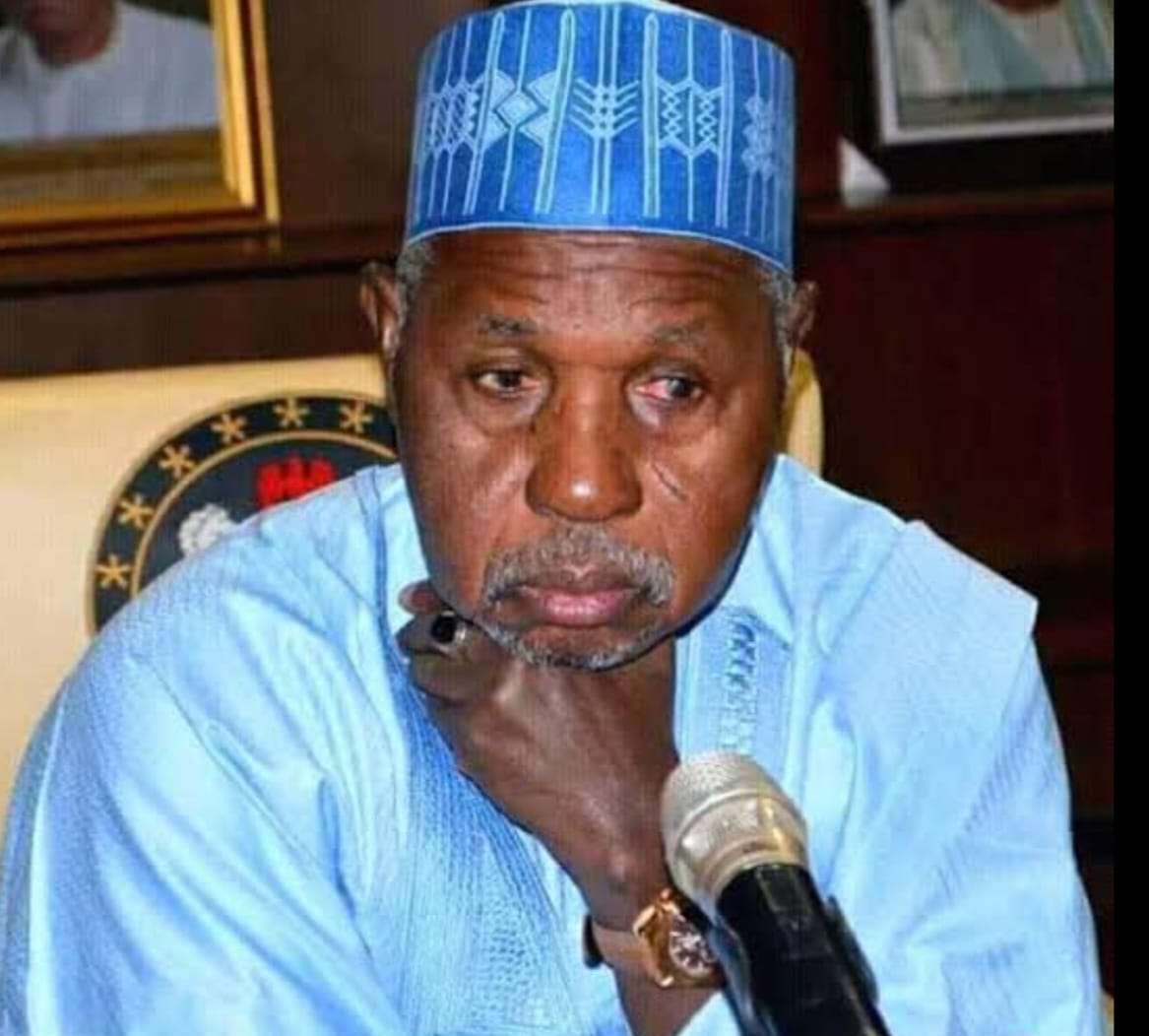
The former Speaker of the House of Representatives and former Governor of Katsina State, Rt. Hon. Aminu Bello Masari has lamented the yawning gap between campaign promises by politicians and realities of governance on the ground.
Delivering the Keynote Address at the 9th Annual Conference of the Guild of Corporate Online Publishers (GOCOP) in Lagos, Masari, who spoke on the theme: Reconciling Campaign Promises with Governance Realities: Challenges and Prospects, listed four conditions to bridge such gaps in the interest of democracy.
To Masari, political actors must campaign with responsibility, insisting that such campaign promises should be realistic, costed and achievable within the available resources.
“Unrealistic pledges made merely to capture the mood of the electorate should be challenged and exposed. Only then can we begin to elevate our political culture and make sure that the process justifies the end. Second, governance must be anchored on strong institutions. With capable institutions, policies can be implemented more consistently and transparently.”
According to him, the third leg must imbibe honest communication with citizens by political leaders. He tasked leaders to explain the trade-offs — why certain promises may take longer, why resources must be reallocated and how progress will be measured.
“Fourth, citizens themselves, including civil society and the media, must understand realities and properly communicate those realities in addition to holding leaders accountable. They should track promises, and demand transparency instead of creating sensational headlines to attract followers, especially now that the number of followers translates into monetary gain.”

Looking at the challenges before political leaders in fulfilling campaign promises, the former Katsina State governor named limited resources, competing demands and unexpected crises.
“Many manifestos are aspirational documents, not grounded in the reality of available resources or institutional capacity. Fiscal constraints are also a big factor. Campaign promises hinge on the resources available to any country. In many African nations — and more specifically in our case — budgets are still heavily dependent on a single commodity: oil. Yet, as we all know, the price of oil is beyond our control. It is volatile, shaped by global market forces, geopolitical tensions, and other complex and unpredictable factors.”
He said beyond resource volatility, there are also unforeseen emergencies that force governments to reorder their priorities with COVID-19 as a vivid example. He said such emergencies consume time, energy and resources and compel governments to suspend plans and promises across all sectors, resulting in campaign promises suffering in the long run.
“Here in Nigeria, insecurity remains a persistent challenge. It undermines production, disrupts livelihoods and reduces national revenues. It compels government to divert enormous resources toward security operations. Another major issue is weak institutions. Even when funds are available, corruption, bureaucracy and inefficiency can derail delivery.”
He concluded that reconciling campaign promises with governance realities is not just about avoiding embarrassment for politicians but about protecting the integrity of democracy itself.
The keynote speaker warned that if citizens repeatedly see promises made and broken, they lose faith in the system.
“But if they see even modest progress explained honestly and delivered consistently, they will continue to believe in the promise of democracy. Let our promises be realistic, our expectations be modest, our governance transparent and our accountability strong. In doing so, we can transform hope into progress, and democracy into a vehicle of real change.”
He commended the EXCO and members of GOCOP on its 9th anniversary and consistently creating platforms for the people to have honest conversations about the future of our democracy.
“This is where journalism at its best, and more specifically GOCOP in this digital age, becomes indispensable. You and your profession are the bridges between the leaders and the people. You shape narratives, hold leaders accountable and track progress.”
News
Enugu Gov, Exco, Lawmakers defect to APC Tuesday
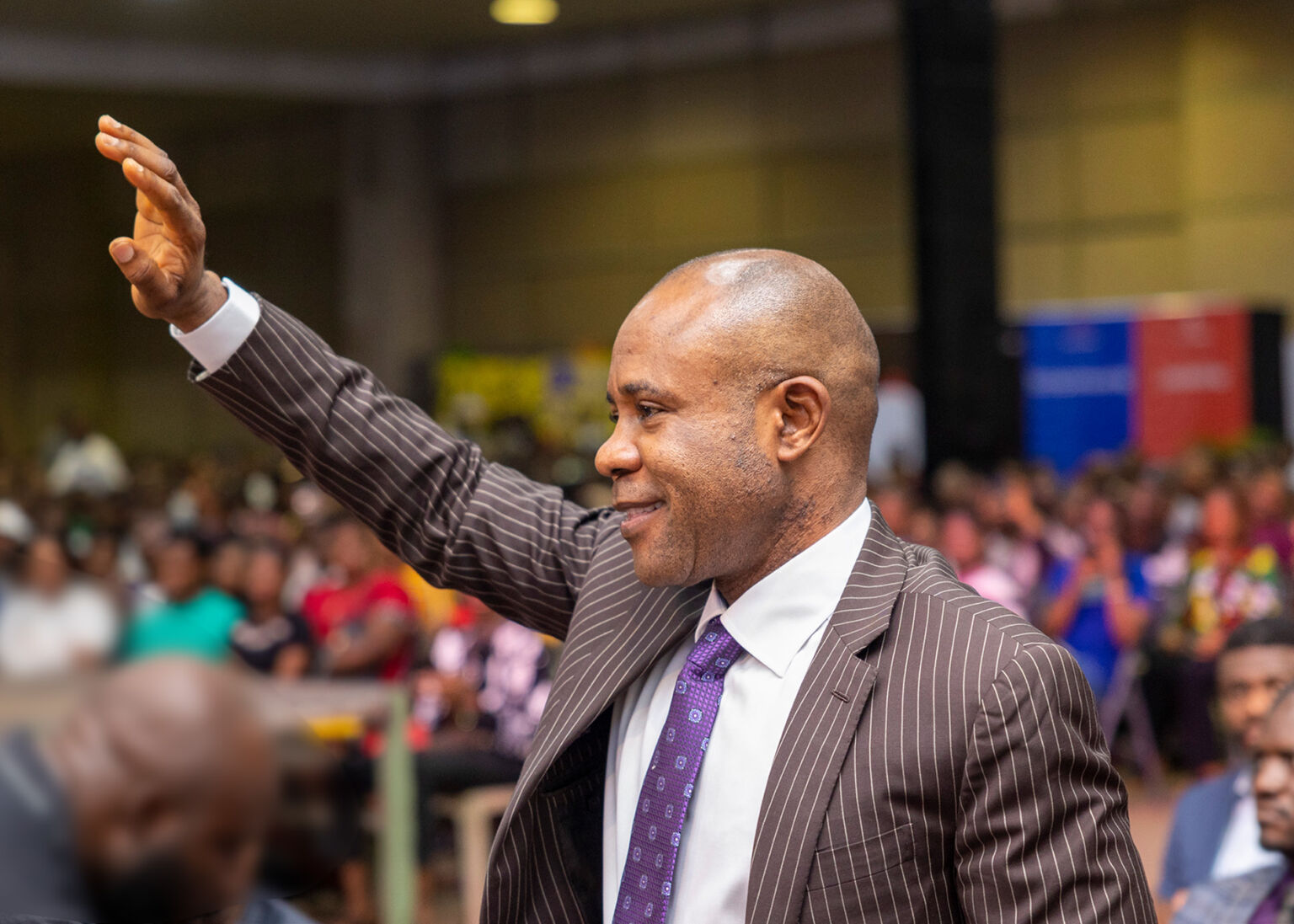
The governor of Enugu State, Peter Mbah, has dumped the Peoples Democratic Party (PDP) for the All Progressives Congress (APC).
This was confirmed by the Enugu APC Caretaker Chairman, Dr Ben Nwoye, while speaking to journalists on Friday.
According to him, Mbah will officially defect to the ruling party on Tuesday, October 14, 2025, in Enugu, alongside federal and state lawmakers, the state executive council members, and ward and local government leaders across Enugu State.
The APC National Working Committee (NWC) on Thursday dissolved the Enugu State Working Committee (SWC) over unresolved differences, appointing a seven-member caretaker committee to oversee the affairs of the party.
The wave of defections from opposition parties to the All Progressives Congress (APC) has continued to grow.
A few months ago, Akwa Ibom State Governor Umo Eno and his Delta State counterpart, Sheriff Oborevwori, both left the Peoples Democratic Party (PDP) to join the APC.

During the defection ceremonies held in Uyo and Asaba, the former APC National Chairman, Dr. Abdullahi Ganduje, revealed that more opposition governors and top party leaders were preparing to cross over to the ruling party.
On October 8, Kelvin Chukwu, the Senator representing Enugu East, also announced his defection from the Labour Party (LP) to the APC.
His move raised the number of APC senators to 73, giving the party a two-thirds majority in the 109-member Senate — a threshold that allows it to easily pass major decisions and legislation.
At the moment, the Senate’s composition stands as follows: APC, 73 senators; PDP, 28; LP, four; All Progressives Grand Alliance (APGA), two; and one each from the Social Democratic Party (SDP) and the New Nigeria Peoples Party (NNPP).
News
Ben Nwoye returns as Enugu APC Chairman after dissolution of Agballah-led exco
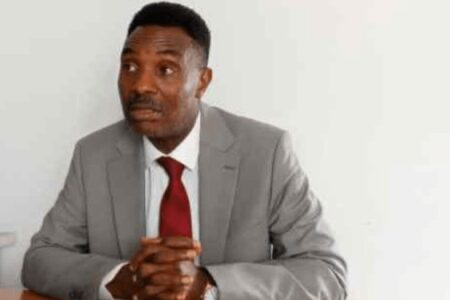
• Ex-Speaker Odoh appointed Secretary
The All Progressives Congress, APC, has dissolved the Enugu State working Committee of the party.
This is preparatory to the detection of Governor Peter Mbah to the ruling party.
The dissolution of the former party executive led by Ugochukwu Agballah came barely 2 days after the Minister of Innovation, Science and Technology, Uche Nnaji resigned over alleged certificate forgery.
Nnaji is an ally of Agballah, the now ex-chairman of APC in Enugu State.
Agballah and Nnaji had seriously opposed Mbah’s defection to the party.
However, Nwoye and other foundation members of the APC insisted that the governor is gladly welcome to the party.

Rising from its 179th meeting in Abuja on Thursday, the APC National Working Committee, NWC, dissolved the Agballah-led SWC with immediate effect.
In its place, former chairman of the party in the state, Barr Ben Nwoye is now the new helmsman of the party in the state.
A former Speaker of the Enugu State House of Assembly, Barr Eugene Odo is the Secretary of the 7-man caretaker committee.
Resolution taken during the meeting was signed by Hon. Durosinmi Meseko, Deputy National Publicity Secretary of the APC.
It reads in parts:
The National Working Committee (NWC) of the All Progressives Congress (APC) held its 179th meeting at the Party’s National Secretariat, Abuja, on Thursday, 9th October, 2025, presided over by the National Chairman, Prof. Nentawe Goshwe Yilwatda.
“At the conclusion of the meeting, the following resolutions were reached:
1. Dissolution of Enugu State Executive Committee and Appointment of Caretaker Committee
The NWC approved the dissolution of the APC Enugu State Executive Committee with immediate effect, following a comprehensive review of the state of the Party in Enugu State.
Consequently, a seven (7) member Caretaker Committee has been constituted to oversee the affairs of the Party in the State.
The Committee, which will be inaugurated on Friday, 10th October, 2025, at 10:00 a.m. at the Party’s National Secretariat in Abuja, is composed as follows:
Dr. Ben Nwoye – Chairman
H.E. Mrs. Fidelia Njeze – Member
Comrade Peter Chime – Member
Dr. (Mrs.) Oby Ajih Member
Dr. Chiedozie Nwafor – Member
Engr. Emma Ekeh – Member
Rt. Hon. Eugene Odoh – Secretary
Details of the APC resolution:


-

 News1 day ago
News1 day agoBREAKING: Tinubu grants 175 persons presidential pardon
-

 News2 days ago
News2 days agoAtiku backs Sowore-led protest, demands immediate release of Nnamdi Kanu
-

 News3 days ago
News3 days agoWhy I resigned, Nnaji explains, denies wrongdoing
-

 News1 day ago
News1 day agoCertificate Scandal: CASER asks Enugu Attorney General to prosecute Ex-minister Nnaji
-

 News3 days ago
News3 days agoCooking Gas: Scarcity, price hike artificial, middlemen exploiting customers — NALPGAM
-

 News2 days ago
News2 days agoRMRDC targets 30% Value Addition Policy on Export of Local Raw Materials
-

 News2 days ago
News2 days agoPresidency rejects World Bank report claiming 139 million Nigerians live in poverty
-

 News1 day ago
News1 day agoTinubu nominates Kogi’s Prof. Amupitan as INEC chairman




